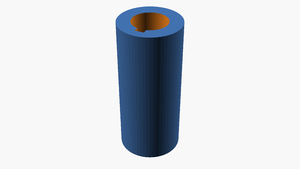Shaft couplers: Difference between revisions
From
No edit summary |
No edit summary |
||
| (One intermediate revision by the same user not shown) | |||
| Line 10: | Line 10: | ||
|parts = | |parts = | ||
|techniques = | |techniques = | ||
| | |files = | ||
|suppliers = | |||
|git = | |git = | ||
}} | }} | ||
| Line 23: | Line 24: | ||
=Approaches= | =Approaches= | ||
==Rigid couplers== | |||
==Flexible couplers== | |||
===Schmidt offset couplers=== | |||
===Spider couplers=== | |||
===Spring couplers=== | |||
===Universal joints=== | |||
=References= | =References= | ||
* [https://en.wikipedia.org/wiki/Coupling Wikipedia: Coupling] | * [https://en.wikipedia.org/wiki/Coupling Wikipedia: Coupling] | ||
* [https://www.surpluscenter.com/Power-Transmission/Shaft-Couplers/Keyed-Splined-Hex-1-Piece-Solid-Couplers/1-Shaft-Coupler-1-1563-E.axd Keyed shaft coupler] | * [https://www.surpluscenter.com/Power-Transmission/Shaft-Couplers/Keyed-Splined-Hex-1-Piece-Solid-Couplers/1-Shaft-Coupler-1-1563-E.axd Keyed shaft coupler] | ||
Latest revision as of 05:21, 11 July 2022
Introduction
A coupling is a device used to connect two shafts together at their ends for the purpose of transmitting power. The primary purpose of couplings is to join two pieces of rotating equipment while permitting some degree of misalignment or end movement or both.
